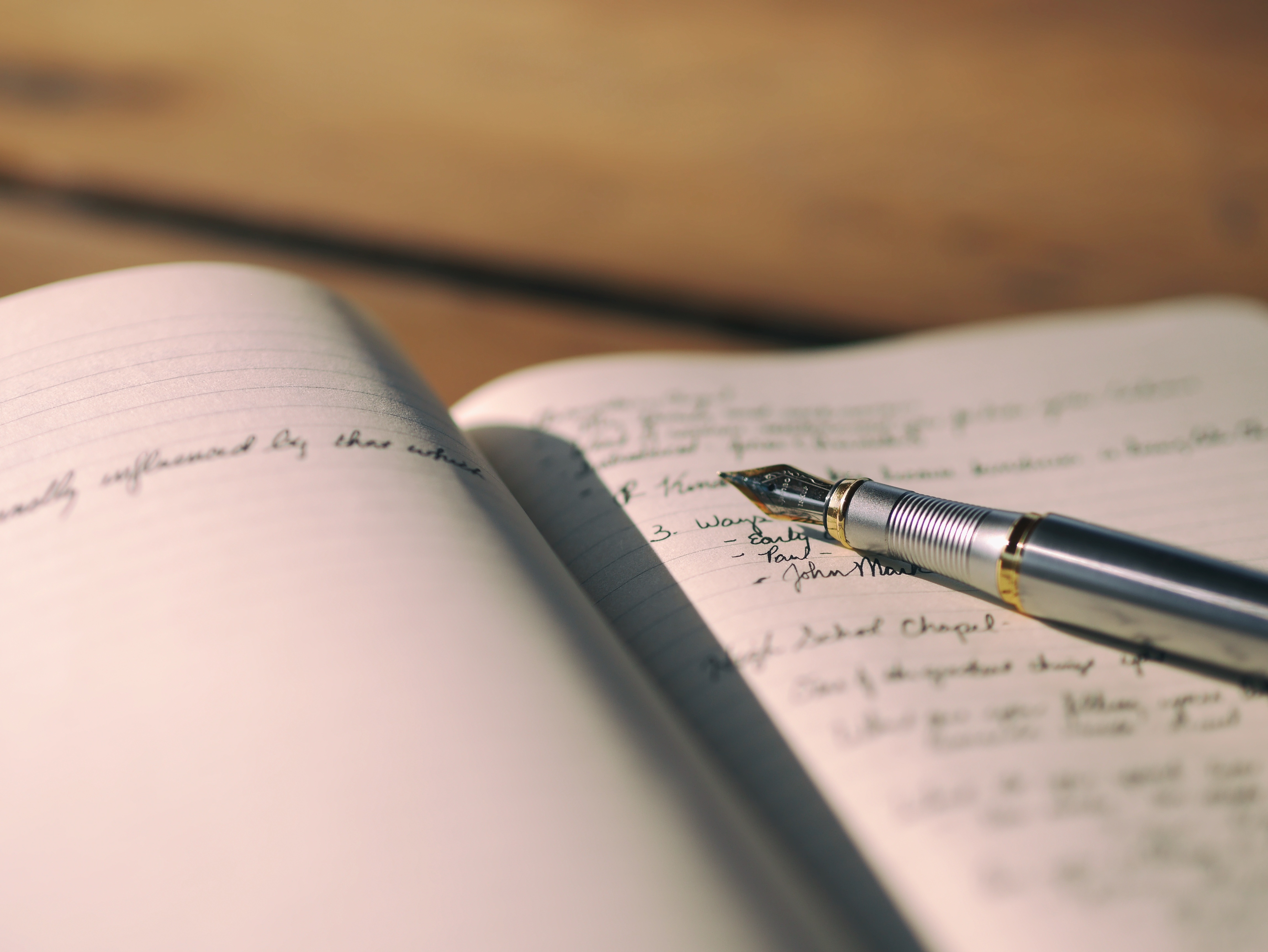How to Journal Yourself Happier
Several years after launching a nonprofit, I found myself craving more support, more time, more peace, more answers and less stress.
For the first few years of that endeavour, my journal had become a running to-do list. There was nothing personal about my writing in my journal. It was filled with checkmarks and arrows and names to call, email, follow up with followed by flat out begging that something would shift.
After reaching my breaking point, I turned off my phone, sat down with a cup of coffee, grabbed a blue pen and I let myself write.

For weeks, I wrote.
• I wrote about my anger for feeling so burned out.
• I wrote about my dreams of wanting something different.
• I wrote about what I wanted to do next.
• I wrote about ways I longed to feel happy again.
I was deliberately asking myself questions that I didn’t know the questions to.
Examples of questions I asked:
• How would it feel if I quit working?
• Who would be disappointed in me if that happened?
• What has to change in order for me to have the life of my dreams?
• Why am I not happy?
After reaching my breaking point, I turned off my phone, grabbed a pen and I let myself write.
Each new question lead me down a rabbit hole of discovering something I couldn’t easily access any other way.
The more I wrote, the better I felt.
The more I wrote, the less stressed I felt.
The more I wrote, the more I changed.

Until one day, I realized I had become the shift I was craving. I had journaled myself happier.
My addiction to my job was a pattern I couldn’t break any other way but through the pages of my journal. I tried doctors, exercise, food, different food, different doctors. It came down to my own patterns and reformatting them in my journal. I was able to reframe my thoughts, beliefs, patterns and stories that cluttered my day and mind. I saw a shift in my mood, behaviors and overall state of well-being within a matter of two months.
Research out of University of Texas at Austin, shows that journaling about emotions and stress actually boost our immune system and in turn reducing the impact of the stress on our physical health.
It also shows that journaling helps clarify our thoughts and feelings, helps us know ourselves better and increases our problem-solving ability. With a clearer mind, I could de-stress myself before I stressed myself.
After moving through the motions, journaling helped me find the underlining issue of my addiction to my job. Writing out that old pattern from an objective point-of-view allowed me the space I needed to get myself in check. If my health and peace of mind were both lost, I’d have more than just my job to worry about. That was my line.
Here are three tips to help you dig deeper in your own journal.
Let It Flow
Free form writing is always a good way to start when you don’t know where to start. What I found even more beneficial was to free form write around a specific question. Ask yourself a question you know could be a trigger for you and just let whatever comes up spill out onto the pages of your journal. When you’ve poured it all out, go back and read your work.
Reflect on What You Wrote
Most people stop at writing. They let the emotions spill out in hopes that just getting it out will change something. I don’t stop there. I go back and read whatever I wrote in my free form exercise.

I highlight things that really trigger me somehow – either positively or negatively. I know those little pieces are the parts that I have to pay more attention to if I want to move past whatever I’m stuck on.
Morning Memoirs
Schedule your journaling session each morning before your day gets going. It’s best if you’re able to journal for 20 minutes each day, however, if that’s too much start at just 10 minutes a day.
Use the same journal every day to capture your thoughts and let your morning be your time to really sink into your stories. Sit in the same spot every day and make sure and set your alarm. When you’re done writing, be sure to reflect for a few minutes and be proud of the self-development work you’re doing.
READ NEXT: 5 Simple Ways to Lighten Up When Things Feel Heavy
Shine is supported by members like you. When you buy through links on our site, we may earn an affiliate commission. See our affiliate disclosure for more info.

